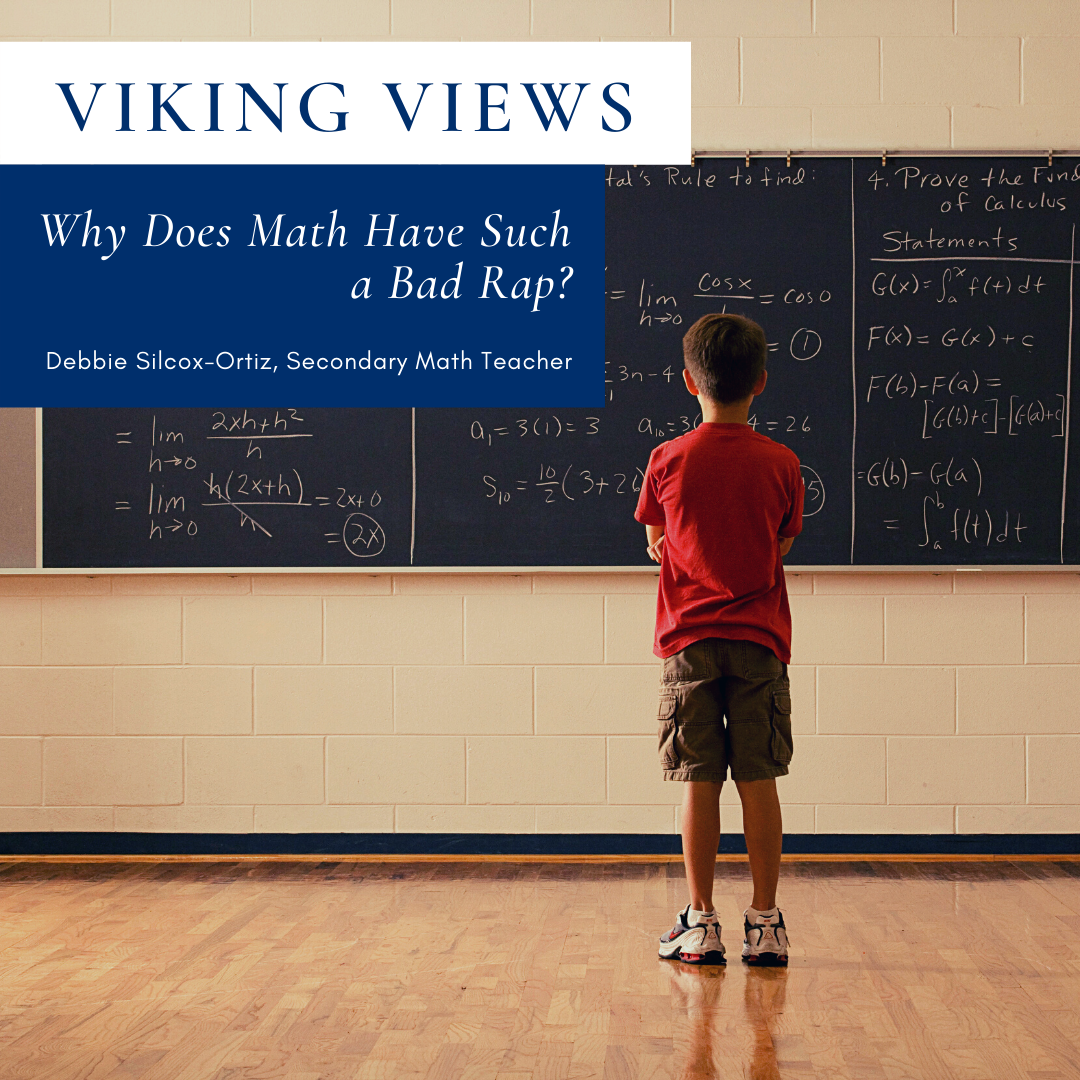Why Does Math Have Such a Bad Rap?

How many times do we hear someone say, “ I’m not good in math”? It’s a subject that many dread; school aged, college aged, and yes, even adults. Considering that math is all around us, you would think we would embrace the subject. It is truly a universal language; 2 + 2 = 4 is the same around the world!
It is interesting on social media how the order of operation problems that are posted get plenty of comments and people defending their answers but the order of operations has never changed as some will say or blame common core. Math is a constant in our life and we all could use more constants in our life.
Let’s think about where math’s bad rep comes from. Early on in their education, students make up their own minds if they are good in math or bad in math. This early thinking can hold them back in class because they may feel defeated before the lesson even starts. In math, there is not usually a middle ground. People don’t typically say, “ I’m ok in math.” A student’s bad opinion on their math ability is hard to overcome. Those who think they are bad at math continue over the years to lack confidence in the math classroom.
The important question here is, how do we overcome the student’s lack of confidence? A math classroom needs to be a safe place to make mistakes, make errors and get problems wrong because from that, growth can happen. Making mistakes and errors is part of the learning process; it can start conversation on what went wrong and how we can fix it. The math classroom needs to be a place of exploration and asking questions. Students need to feel they can get a problem incorrect and still know it is safe to ask questions.
There are many different ways in which we learn, and in the math classroom, we need to meet students where their abilities are. As math teachers, we teach different methods and strategies. Some students need to visually see a math process to understand it, while others need to understand the why behind what we do, and still others need repetition to learn a math skill. Where math may have a specific answer, there may be more than one way to get that answer. It’s individual how our brain processes math. In the classroom we teach through direct instruction, we try to allow self-discovery in topics that we can, we do hands on activities, and we teach different math strategies. We do all this for the students to engage their thinking process and for their senses to absorb math skills being taught.
Math is all around us, and that is something that will never change. As a society we need to embrace math and promote progress in one’s math skills. It should always be about the progress! Let’s do our part and help change math’s bad reputation!